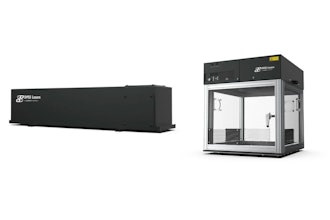JEFFERSON CITY, Mo. (AP) -- The House endorsed up to $40 million a year in tax breaks Tuesday to try to lure a Canada-based airplane maker to open a new plant near the Kansas City airport.
The House gave initial approval to the enticements for Bombardier Aerospace after barely a couple hours of debate -- a sharp contrast with the Senate, where debate on the legislation has spanned several days as various senators have raised concerns about the deal. The Senate adjourned Tuesday night without reaching a vote on the bill.
Each chamber would need to pass the same version of the legislation for it to become law. Even then, there is no guarantee that Bombardier will put its new plant in Missouri. The company's first choice has been to build the C Series of 110- and 130-seat passenger jets in Canada.
Rep. Ron Richard said it's not uncommon to offer tax incentives to land big projects. But he said Missouri is trying something new by linking them to the creation of new jobs.
''We don't do anything unless there's a building on the ground and people hired,'' said Richard, R-Joplin.
The House voted overwhelmingly to give preliminary approval to the plan, but some House Democrats criticized Republicans for being too willing to offer various tax breaks.
''It's a staggering amount that we're completely relinquishing control over,'' said Rep. Rachel Bringer, D-Palmyra.
Under the bill, the state would grant tax credits based on a percentage of the payroll: 80 percent the first three years; 60 percent for years four and five; 50 percent for years six and seven; 30 percent for years eight and nine; and 25 percent for years 10 through 22. In no year could the tax credits exceed $40 million.
The legislation does not mention Bombardier by name. That means it technically could apply to any large economic development project, but only ones approved by the Department of Economic Development by the end of 2008.
To qualify, projects would need at least a $300 million capital investment over eight years, must create at least 1,000 jobs paying at least average wages and must cover at least 80 percent of the cost of the employees' health insurance premiums.
The company would have to commit to a facility of at least 1.3 million square feet -- the size of the airplane plant proposed by Bombardier -- and must be weighing offers from at least one other state or country.
The legislation would require a pair of independent analyses -- one supporting the market feasibility of the company's plan, the other confirming the company's financial ability to complete the project.
Also, the legislation would require Bombardier to repay the state for the tax breaks. The Senate version is more detailed than the House bill about how that would be done. Although not spelled out in the bills, the intent is that Bombardier would pay the state a certain amount for each plane it sells from the Missouri plant.
Senate Majority Leader Charlie Shields, R-St. Joseph, has said the state should start receiving more money from Bombardier than it is paying out in tax credits within six to eight years.
The Senate version would create a special state fund into which lawmakers could deposit money to offset the tax credits, so that the state would not take too large of a financial hit in the early years of the project.
But senators defeated 18-12 an amendment by Sen. Jason Crowell, R-Cape Girardeau, that would have required the Legislature to sign off on the final deal negotiated by the Department of Economic Development before any tax credits could be issued.
Much of the Senate debate Tuesday focused on how to limit conflicts of interest or prevent Bombardier from someday selling planes to countries that support terrorists.
As amended, the Senate bill would bar Bombardier from hiring anyone within the first five years who was an elected official in Missouri, a Department of Economic Development employee involved in negotiating the deal, or a relative of any of those people.
Crowell also argued that if Bombardier were to enter into a contract with any countries supporting terrorists, it should have to repay the tax credits it received from the state. But Crowell failed to get that provision into the bill.
The House plan includes a provision that would give Bombardier a break on its property taxes. It exempts developments at the airport from a tax levied on businesses that build profit-making buildings on city-owned land and then deed the structure back to the city to avoid property taxes.
Rep. Tim Flook, R-Liberty, said that would let Bombardier recoup its construction costs and that without it, it's unlikely Missouri would get the plant.


















